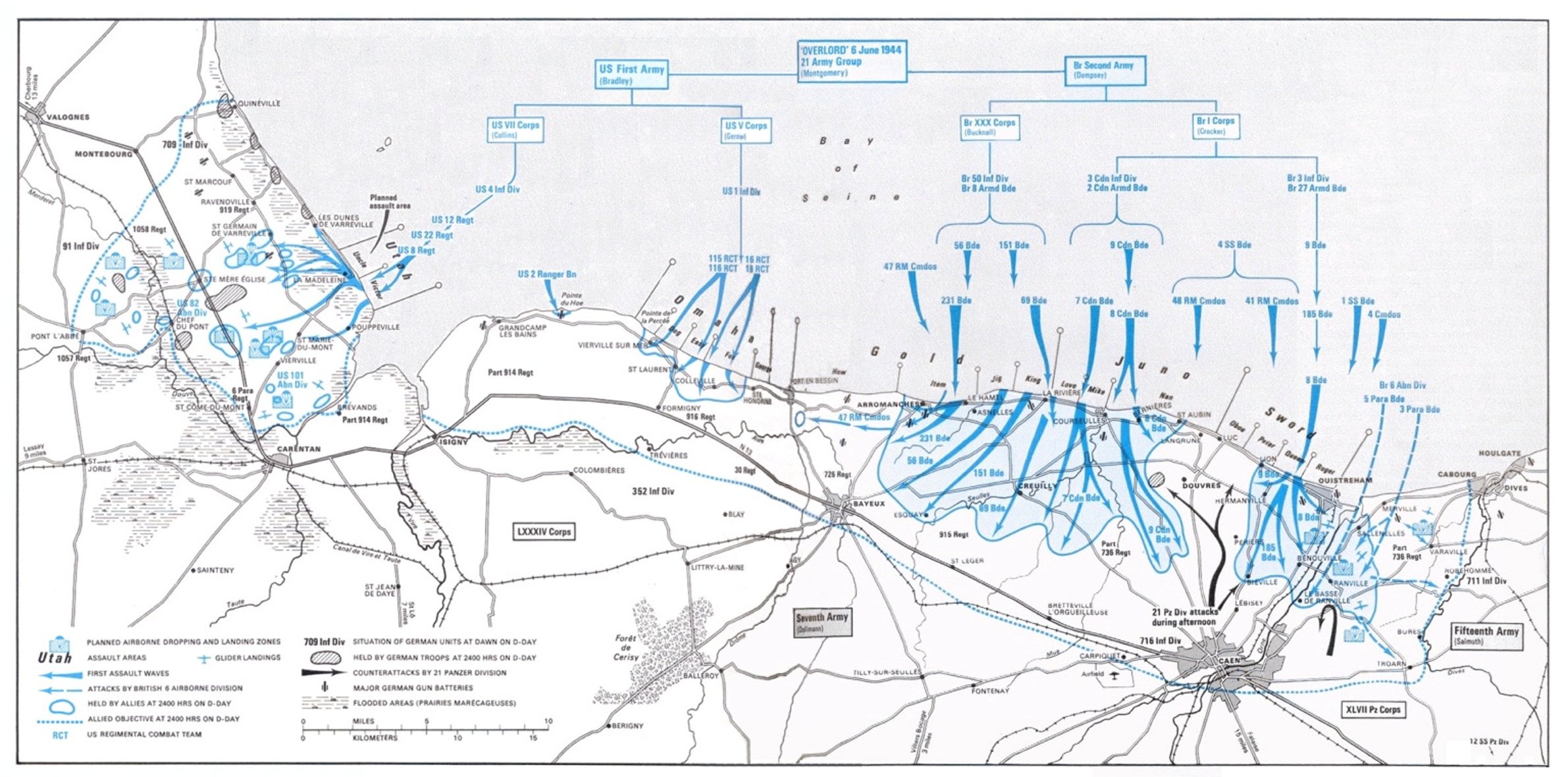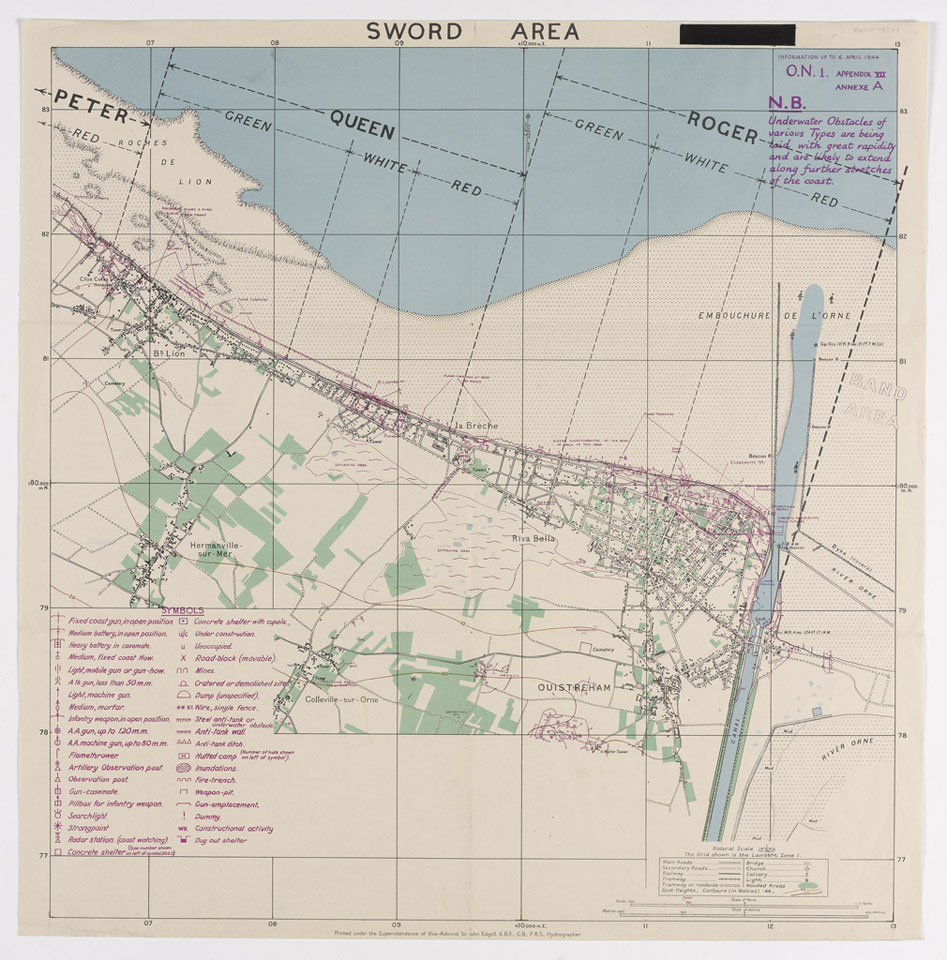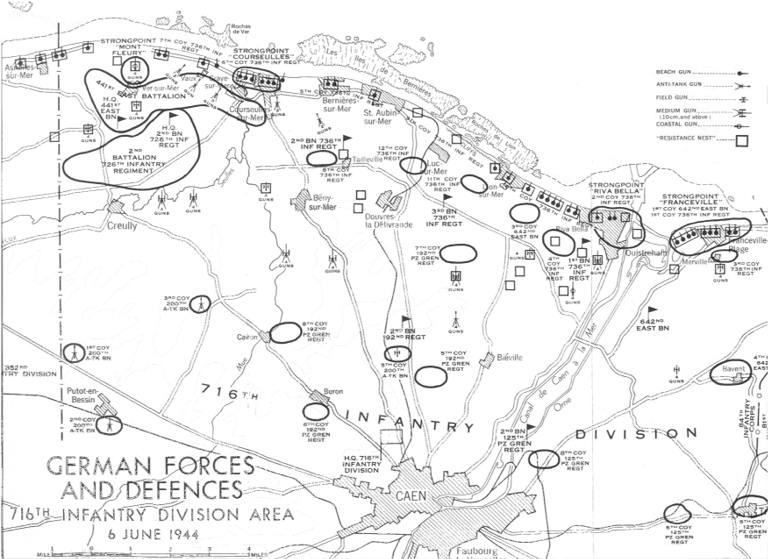I guess another proposed scenario would be if more veteran German soldiers had been deployed along with extra reserves for the entrenched positions. This proposed scenario partially results from Bodo Zimmerman who proposed the reasons they failed, and to which I will respond to how they could've inflicted more casualties or even have won based off the information he had and the choices he wanted to make.
This is just a little prefrace before I go on to describe the actual description of the events prior to the invasion of D-Day itself, if you guys want I'll make an actual description of the actual D-Day landings and their direct aftermath.
So here's the actual proposal:
March 8th, 1944: Someone,(Cough) Rundstedt (Cough), listens to Zimmerman that all inactive personnel SHOULD reside or rest in Air-raid shelters that SHOULD be built following the Allied Air Dominance of Northern France
March 11th, 1944: Fliegercorps IX and Fliegercorps X are merged into Fliegercorps IX and is put in charge of Northern France
March 17th, 1944: German Industry begins producing equipment at a faster scale with more emphasis being made on the use of larger labor forces with more nationalized armament manufacturies
April 4th, 1944: Rommel is designated Commander-in-Chief of the West due to the status of the Atlantic Wall reported under Rundstedt's command
April 5th, 1944: Bodo Zimmerman assumes the position of Commander of Forces in France under Rommel
April 7th, 1944: The order is given to mobilize 4 full Infantry Divisions under the titles of 712th, 713th, 714th, and 717th from Soviet, French, and German Prisoners/Conscripts
April 8th, 1944: Rommel's suggested reforms are made a reality and units along the Northern Coast of France begin drilling and rigorously fortifying their defenses
April 9th, 1944: German High Command is able to spare extra materials and armaments from overworked armament manufacturies in France, Germany, and Czechia
April 15th, 1944: Bodo Zimmerman submits his report that the allied forces may be planning a bluff at Calais (OTL)
April 16th, 1944: Rommel agrees with Bodo Zimmerman's claim
April 17th, 1944: The Kriegsmarine is instructed to get Naval Intelligence of British Assets (OTL)
April 23rd, 1944: Extra armaments, ammo, and materials arrive in Normandy in order to strengthen the defensive positions
May, 1944: Drills, entrenchment of the channel, and the successful negotiation of deploying the 1st Panzer Army as reserves for the Atlantic Wall on the Northern Coast of France
June 5th, 1944 at 0700: The Radio Londres Broadcast of
"Les sanglots longs
Des violons
De l’automne
Blessent mon cœur
D’une langueur
Monotone."
is mispronounced and/or is lost altogether. (I'm actually on the fence here, it almost happened and did happen in some areas. So, should the French Resistance be active or inactive?)
June 5th, 1944 at 2000: Rommel would remain in France due to a increase in encrypted radio transmissions that looked like a possible Allied Action. Rommel would then alert units to raise readiness status along the Northern coast of France and contact Fliegercorps IX with orders to intercept any allied aircraft.
June 5th, 1944 at 2100: French Resistance members move to attack their targets
June 5th, 1944 at 2110: CIO of the C in C of the West decrypts a communique between a High-Rank French Resistance Officer and SOE in London, the message is simple "Do I mobilize forces to assist in the landing at Normandy or do I direct my attentions towards German reserves at Paris". (OTL)
June 5th, 1944 at 2115: Bodo Zimmerman is informed of the development. (OTL)
June 5th, 1944 at 2118: Bodo Zimmerman calls up Rommel and informs him the invasion is imminent. (OTL, yes this actually happened and Bodo Zimmerman was told to "Stop making up stories" when he called Rundstedt who was in the same position OTL)
June 5th, 1944 at 2130: Luftwaffe units are to go to full readiness status along with Army and Naval units
June 6th, 1944 at 0015: Allied pathfinders land at their designated zones (like OTL)
June 6th, 1944 at 0100: Axis interceptors strike at the Allied transport planes flying over Normandy
June 6th, 1944 at 0130: Allied paratroopers begin landing (like OTL)
GERMAN ORDER OF BATTLE OF AXIS BY JUNE 6th, 1944 at 0000:
709th Infantry (Russian/Ukranian, Conscripts), 716th Infantry (German, Conscript), and the 352nd Infantry (German) at NORMANDY
712th Infantry (French, Conscripts) and 21st Panzer (German) at CAEN
12th Hitlerjugend Panzer at AVRANCHES
713th Infantry (French, Conscripts) and 714th Infantry(Sickly, Elderly, German) at PARIS
Panzer Lehr at ROUEN
243rd Infantry, 91st Air Landers, and 6th Parachute at COTENTIN
FLIEGERCORPS IX: ~1,200 operable fighters, ~500 available bombers, and ~1,300 varying of varying classification (I will find a list one of these days and this aircraft list may be changed by next post)
3 DDs, 5 TBs, 163 Minesweepers, 34 E-Boots, and 37 Submarines
SOURCES:
There's like 30 different direct documents but am mostly "Fatal Decisions", "Armor Battles of the Waffen-SS 1943-45", and a number of deployment orders throughout the years of 1943-44.




